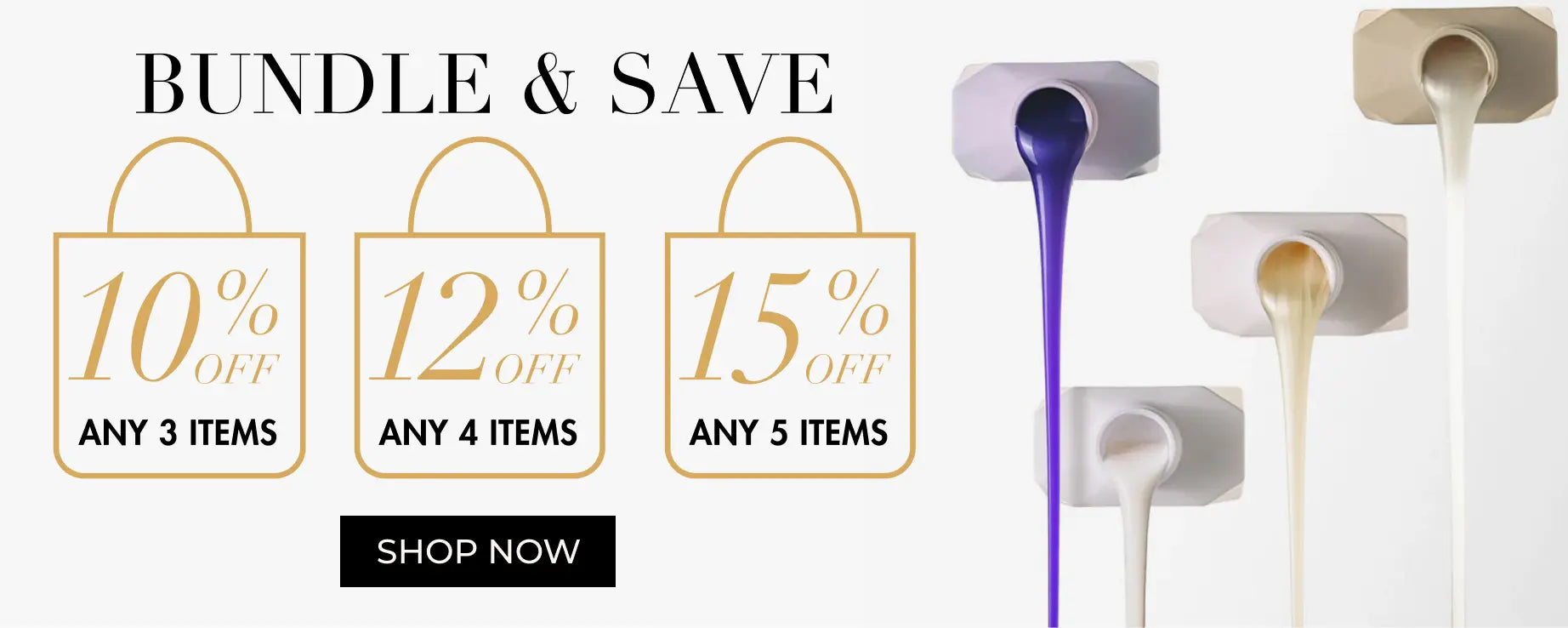It can be deeply frustrating when hair that once flowed with silky softness becomes dull, brittle, and difficult to manage. It’s more than just a cosmetic change.
If you’re finding yourself spending more time trying to revive your strands, only to end up with lackluster results and even more damage, you’re not alone. And most importantly, you’re not without options.
This guide is your starting point for a scientifically grounded, luxury-level approach to understanding, treating, and ultimately preventing heat damage.
Index
What is Heat Damaged Hair?
Understanding the Hair Structure

Heat damage begins at the cuticle, the outermost layer of the hair strand. This layer serves as your hair’s first line of defense, sealing in moisture, reflecting light for natural shine, and shielding the inner structure from both environmental stress and mechanical wear.
But with frequent or excessive heat styling, this protective barrier begins to break down. The cuticle can crack, lift, or even erode completely. When that happens, the inner layer (the cortex) is left exposed and vulnerable.
The Science Behind Damage

The cortex is where your hair’s strength, elasticity, texture, and color live. It’s made up of tightly coiled keratin proteins, which give hair its structure. Once this layer is exposed, it’s prone to moisture loss, protein denaturation (breakdown), and irreversible changes to the hair’s shape and resilience.
Heat damage goes far beyond a few split ends or momentary dryness. It’s a gradual breakdown of your hair’s natural defense system, leading to strands that feel dry, look dull, and no longer respond to styling or hydration the way healthy hair does.
Heat Damaged Hair vs Healthy Hair
Not all heat damage looks or feels the same, and understanding the signs can help you determine where your hair stands and what it needs to recover.
Visual and Textural Signs

Dullness: Healthy hair reflects light evenly due to a smooth, intact cuticle. When heat lifts or cracks that surface, light scatters, leading to a noticeable lack of shine.

Frizz: A disrupted cuticle doesn’t lie flat, causing strands to lift, separate, and frizz.

Split Ends: These are a visible signal of stress at the tips and often a sign that deeper internal damage may be working its way upward.

Uneven Texture: Sections of the hair may feel rough, dry, or stringy, especially if heat has been applied unevenly or too frequently.
Behavioral Signs

Loss of Elasticity: Healthy hair gently stretches when wet and returns to shape. Damaged hair may snap easily or feel limp and unresponsive.

Increased Tangling: Raised cuticles and protein loss create more friction, making detangling more difficult.

Style Resistance: Damaged hair often struggles to hold a curl, straighten evenly, or maintain its shape after styling.

Porosity Shift: You may notice your hair drying too quickly, due to moisture loss, or too slowly, if the cuticle has become overly porous and absorbs excess water.
Severity Scale

Mild: Slight dullness, occasional frizz, some dryness or rough ends.

Moderate: Noticeable frizz, uneven texture, frequent tangling, and reduced elasticity.

Severe: Extreme dryness, split ends throughout, breakage, and difficulty holding style or retaining moisture.
Is Heat Damaged Hair Permanent?
While some heat-damaged hair can be visibly improved, hair itself is not living tissue and cannot regenerate like skin. In cases of severe heat damage, full recovery of the hair strand is not possible.
Severe damage usually means the cuticle has been compromised. Once the cuticle is worn away or significantly damaged, it cannot rebuild itself. In these situations, trimming is the only way to remove the most damaged ends and prevent further breakage.
Even if the structure of damaged hair won’t fully return to its original state, its appearance, strength, and manageability can be greatly enhanced through:
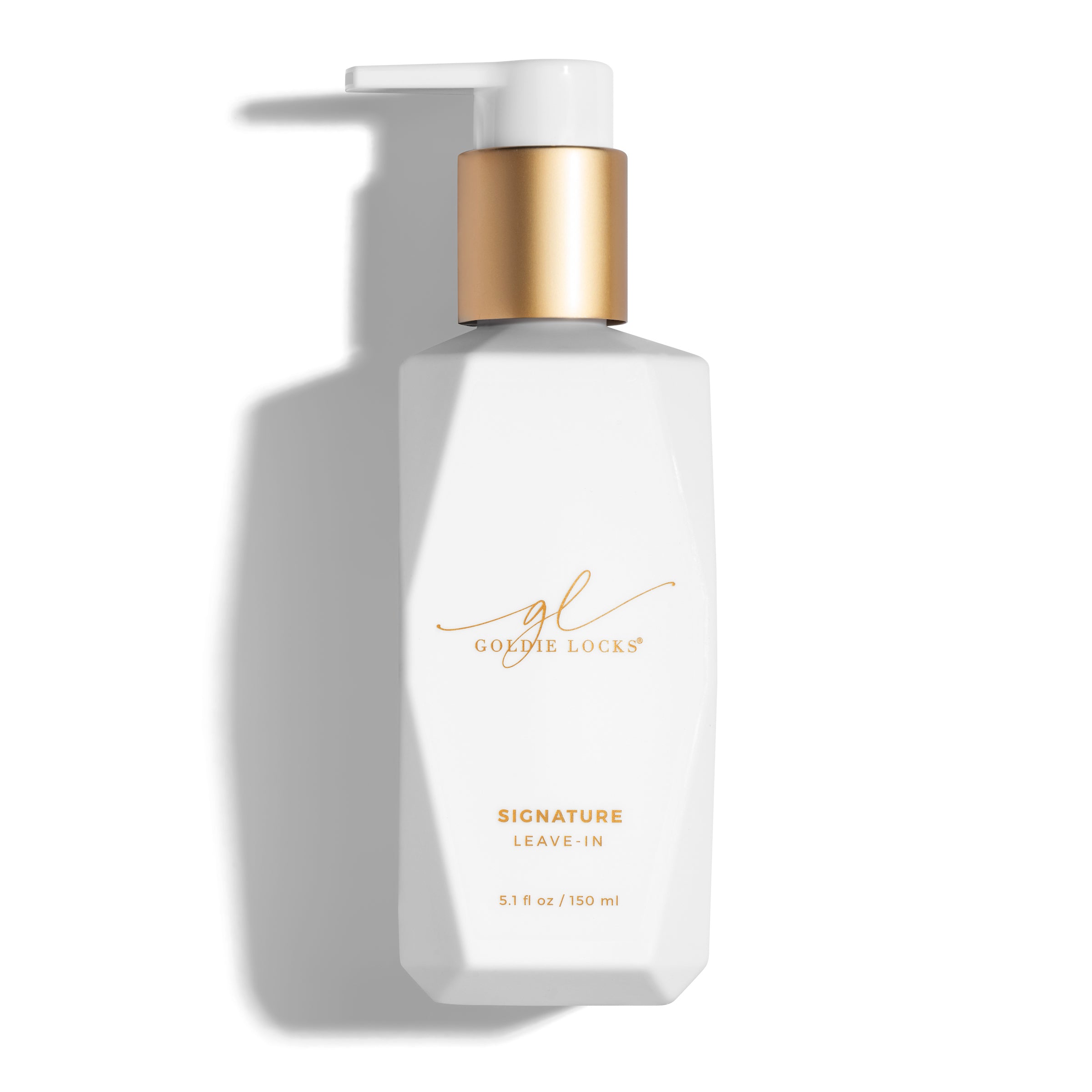
Moisture Restoration with Goldie Locks® Signature Leave-In Conditioner & Goldie Locks® Signature Hair Mask
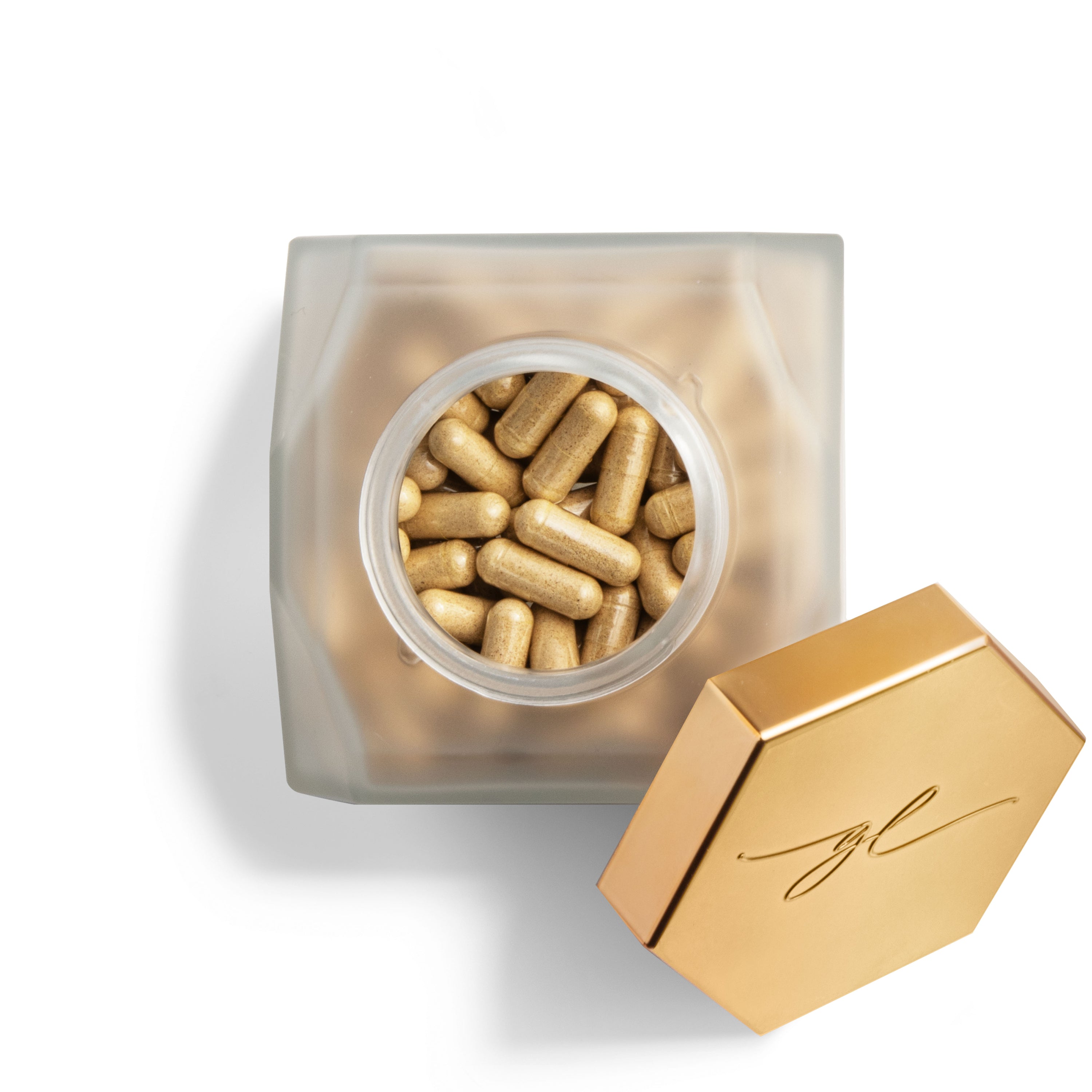
Protein Treatments with Goldie Locks® Hair Supplements
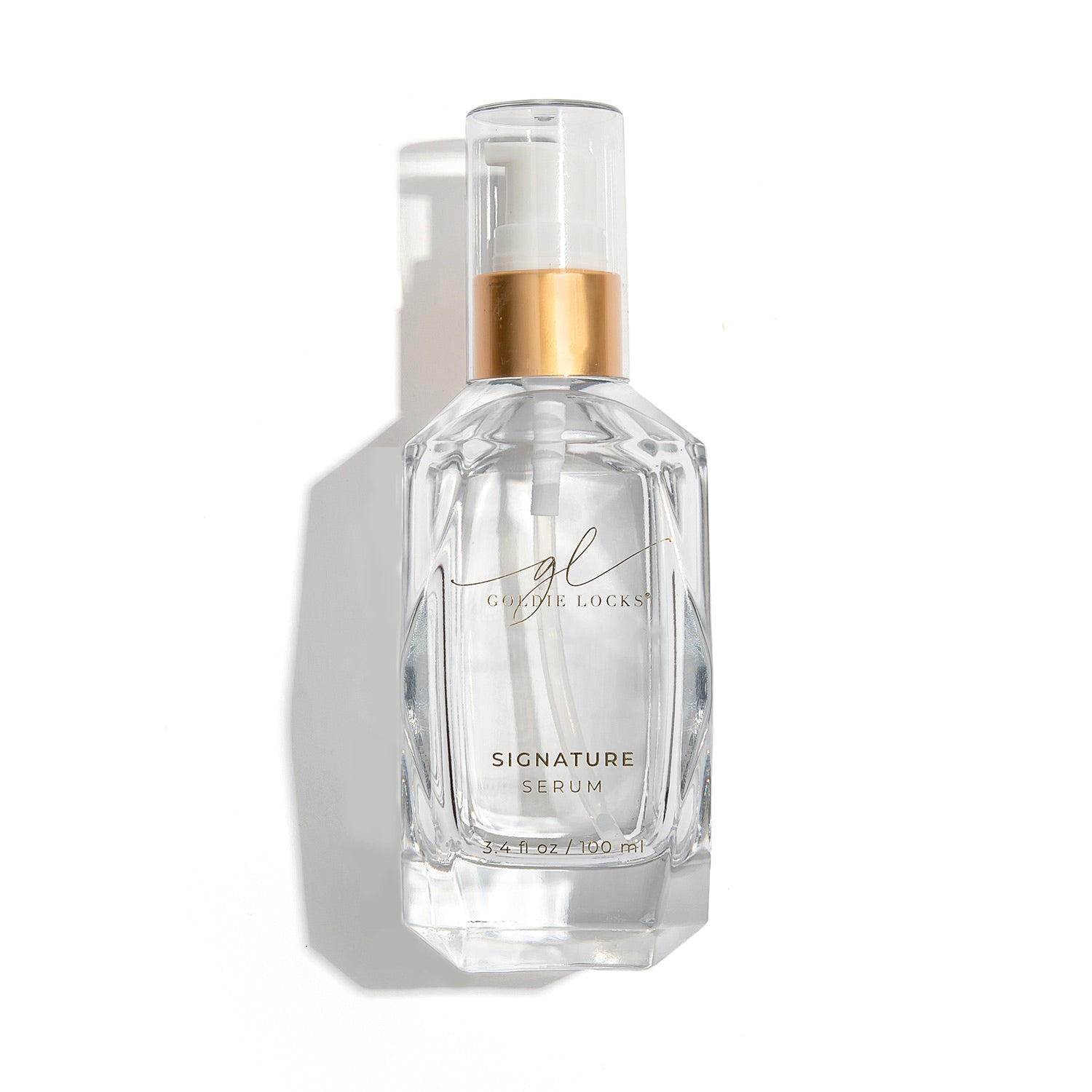
Protective Styling with Goldie Locks® Signature Hair Serum
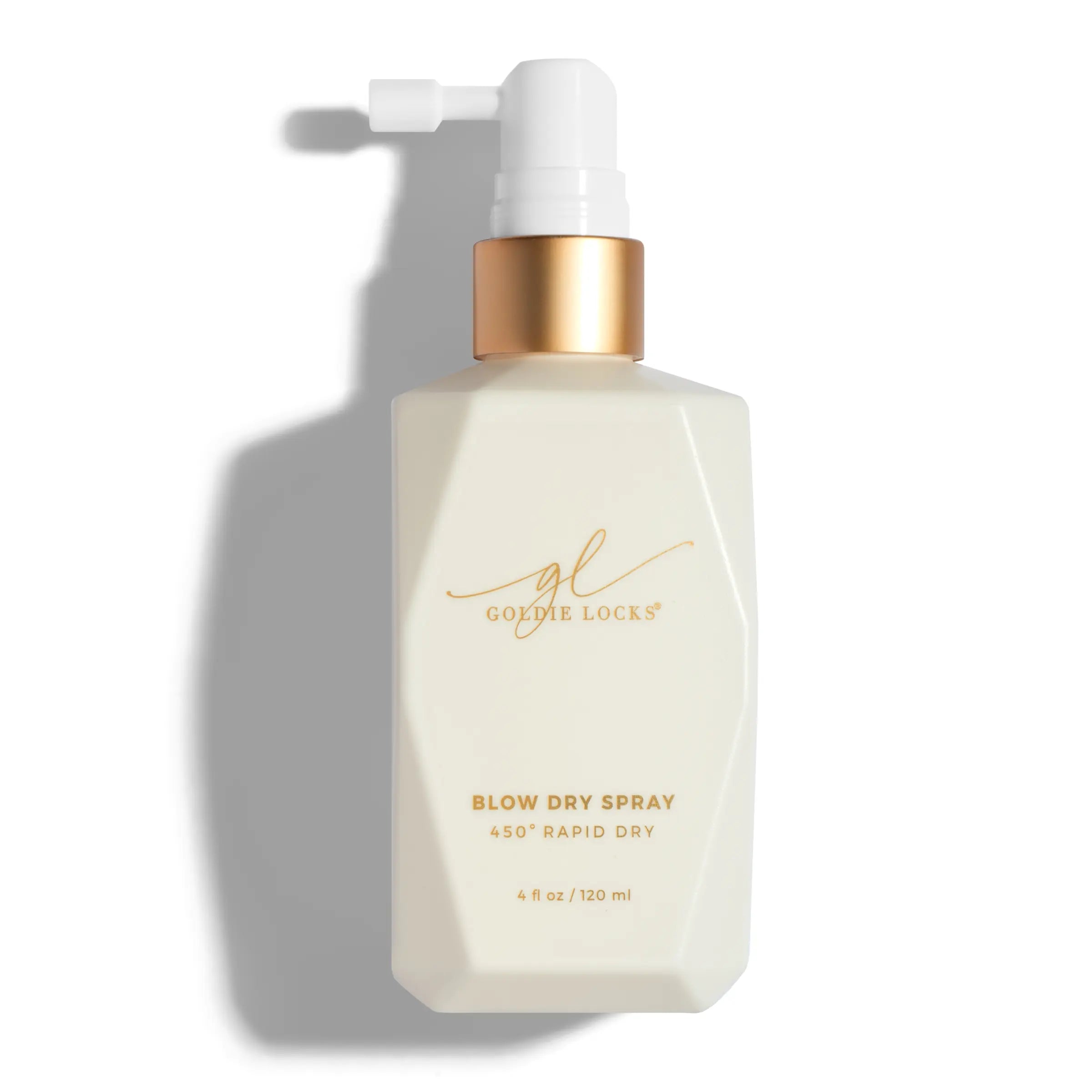
Minimizing Heat with Goldie Locks® Blow Dry Spray
These approaches can help you maintain and enhance the condition of your hair while promoting healthy growth.
Recovery is a gradual process and results depend on consistency, hair type, and the severity of the damage:
- 1–2 weeks: Hair feels softer and retains moisture better with regular conditioning and reduced heat styling.
- 1 month: Noticeable reduction in breakage, improved shine, and better elasticity.
- 2–3 months: Hair feels stronger, detangles more easily, and split ends become less frequent.
- 6+ months: Significant overall improvement; many choose to gradually trim remaining damaged ends over time.
How to Fix Heat Damaged Hair
If you aren’t keen on doing a full cut, here are other alternative steps you can take to nurse your hair back to health:
-
Lay Off the Heat
Repeated heat exposure only worsens damage. Choose air-drying, heatless styles, or use low-heat settings with Goldie Locks® Blow Dry Spray for protection. -
Deep Condition Weekly
Use Goldie Locks® Signature Hair Mask once or twice a week to replenish softness, elasticity, and shine. -
Alternate Protein Treatments
Apply a protein treatment every 2–4 weeks to strengthen strands but avoid overdoing it, as too much protein can cause stiffness or breakage. -
Use a Leave-In Conditioner
A leave-in adds daily moisture, tames frizz, and makes detangling easier. Try Goldie Locks® Signature Leave-In Conditioner for lightweight, lasting hydration. -
Protective Styling
Opt for loose styles like buns, braids, twists, or updos to reduce manipulation and prevent breakage. Be sure to alternate styles and give your hair breaks in between. -
Gentle Detangling
Always detangle when hair is damp and conditioned, using a wide-tooth comb or your fingers. Avoid harsh brushing, especially on dry or fragile strands. -
Trim Gradually
Instead of a big chop, schedule small trims every couple of months. This gently removes damaged ends while preserving your length. -
Sleep Smart
Switch to a silk or satin pillowcase, or wear a satin bonnet to protect your hair at night. This helps retain moisture and reduces breakage. -
Scalp Care & Nutrition
Keep your scalp clean, gently exfoliated, and moisturized. Support hair health from within with a balanced diet, plenty of water, and supplements if needed. -
Be Patient
Hair repair takes time. Stick with your routine and expect to see improvements within weeks, with more noticeable results over several months.
Protecting Hair From Future Heat Damage
-
Rinse with Cool Water

After washing, finish with a cool water rinse. This helps seal the hair cuticle, locking in moisture and leaving your hair smoother and shinier. -
Keep Your Blow Dryer at a Distance

Always hold your blow dryer at least 5 inches away from your hair. A 2011 study found this distance helps protect the hair follicle and can be gentler than air-drying in some cases. -
Use a Microfiber Towel

Swap out rough cotton towels for a microfiber towel. It absorbs water faster, shortens drying time, and reduces friction, helping to prevent breakage and frizz while keeping the cuticle sealed. -
Apply a Heat Protectant Spray

Before using any hot styling tool, apply a heat protectant spray like Goldie Locks® Blow Dry Spray to create a protective barrier around the hair shaft, sealing the cuticle and minimizing heat damage. -
Sleep on a Satin Pillowcase

Satin pillowcases reduce friction during sleep, helping preserve your hairstyle and prevent breakage.
FAQs About Heat Damaged Hair
Will Hair Grow Back from Heat Damage?
Hair that’s already heat-damaged can’t “heal” because hair itself isn’t living tissue. However, as long as your hair follicles, the root structures beneath your scalp remain healthy and undamaged, new hair will grow back normally.
How Long Does It Take to Recover from Heat Damage?
Since damaged hair can’t truly be “repaired,” recovery is really about promoting healthy new growth and improving the overall condition of your hair over time.
Final Thoughts
Now that you have the knowledge to identify and address heat damage with confidence, you’re empowered to take control of your hair’s health.
With Goldie Locks®, experience the gold standard in care. Our premium, scientifically advanced formulas go beyond surface-level fixes, honoring both the unique biology of your hair and your desire for elevated, effortless beauty.
Let this be the start of your hair renewal journey. Our restorative treatments, intentionally crafted to strengthen, protect, and transform, so your hair looks as healthy as it feels.


























